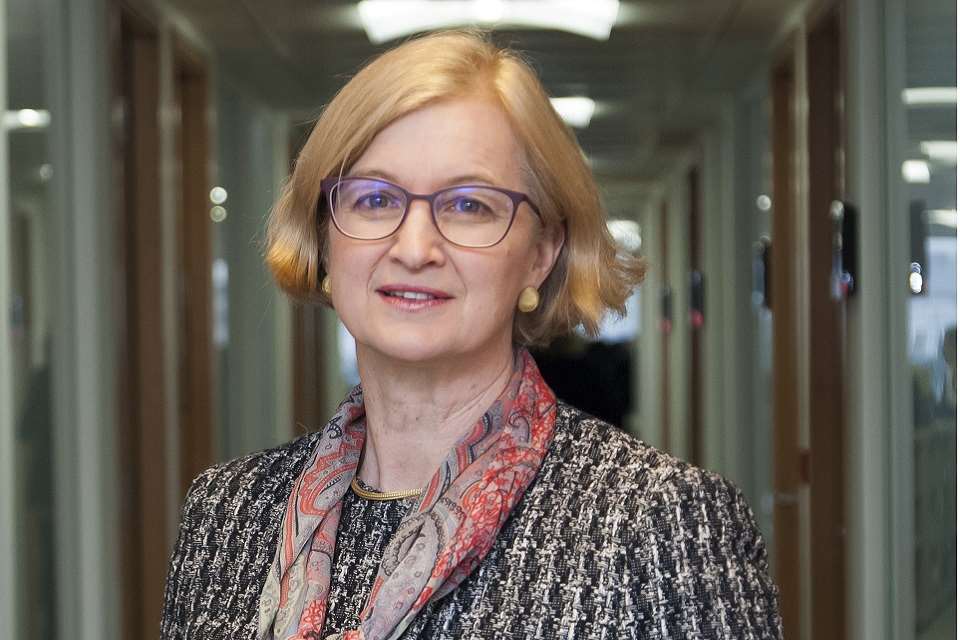Ofsted 'must take account of ongoing pandemic in inspection'
Catherine Gaunt
Tuesday, December 7, 2021
Ofsted has been urged to consider the ongoing impact of Covid in its inspections as early years settings continue to recover from the pandemic, organisations responding to its annual report have said.

Ofsted's annual report for 2020-21 published today found that 'almost all children' had suffered in lost learning or development as a result of the lockdown and pandemic.
Chief inspector Amanda Spielman wrote in the report, ‘Almost all children felt the impact of Covid-19 and the resulting restrictions to some extent. Many of the youngest children had their development and progress hampered, with some even regressing. Given the vital importance to children of a good start in life and the learning potential of the youngest children, this must not be overlooked.'
Meanwhile, the National Education Union (NEU) has called on the Government to ‘pause’ the inspection regime, in the wake of ongoing concerns about the new Omicron variant.
Neil Leitch, chief executive of the Early Years Alliance, said, ‘Ofsted’s Annual Report shows that providers continue to operate under the huge additional pressure of Covid-19 safety measures and staffing challenges, all while helping children to close gaps in their learning and development - and yet the early years sector is still the poor relation of the education system when it comes to the government's Covid-19 support and recovery funding.
‘While only a small number of inspections were carried out last year, initial data suggests Ofsted inspectors may not be giving adequate consideration to the ongoing impact of Covid-19 on providers, and what little support they have had, so we are committed to working closely with Ofsted to ensure a robust, but fair inspection process that remains focussed on the wellbeing of children.’
Ofsted resumed on-site inspections under the education inspection framework (EIF) for registered early years providers in May, the majority in new providers.
Data shows that 83 per cent of those early years providers inspected during this time were good or outstanding.
Of the 1,730 full inspections Ofsted carried out this reporting year, a large majority (65 per cent) were ‘post-registration’ inspections of providers whose first inspection was overdue, or that had recently registered. Ofsted found that 88 per cent of providers were good or outstanding at their first inspections.
Meanwhile, figures for the overall effectiveness of all early years providers up until 31 August, show that 97 per cent were judged good or outstanding at their last inspection.

Source: Ofsted Annual Report 2020-21
Purnima Tanuku, chief executive of the National Day Nurseries Association, said, ‘It’s a great tribute to our nurseries that despite the negative impacts from the pandemic, 97 per cent are still judged as being good or outstanding.
‘However, we are concerned by the trend in recent inspections. It is vital that inspectors recognise the challenges that nurseries still face and the stress that staff are under on a daily basis. Due to ongoing measures and staff absences, nurseries are very different places compared to pre-pandemic times. Ofsted must review its complaints and appeals procedure to make sure that complaints are treated fairly.
‘Even before the Covid-19 pandemic hit, we were reporting that staffing recruitment and retention had hit crisis levels but the pandemic has made this situation even worse. It’s important that this is recognised by Ofsted. There is therefore a question about how everyone in the sector, from Government to Ofsted can put measures in place to support nurseries to retain staff and to encourage more people into the profession.’
Both the Alliance and the NDNA said it was right that the report highlights the important role early years settings have played during the pandemic, but both said they were worried about the fall in early years attendance, particularly in deprived areas.

Leitch added, ‘It is testament to the dedication of early years educators in this country that 97 per cent of settings on the Early Years Register are rated good or outstanding for the quality provision they offer young children - and that dedication has been proven throughout this very difficult year.
‘However, it is concerning to see that attendance in early years settings remains lower than before the pandemic, with more deprived areas the worst affected, meaning more children are missing out on essential early education, including many of those who stand to benefit the most.
‘As the report says, early years educators went out of their way to support children and keep them safe during the pandemic – crucially, the government must now repay that hard work and care with proper support for this sector, to ensure it can continue to deliver the early education that every child needs and deserves, more now than ever before.’
Tanuku added, ‘This Ofsted report rightly acknowledges the key role that early years settings and their workforce have played in supporting our youngest children through such a tough year with the harmful effects of closures and restrictions.
‘We are hearing from early years providers how they have worked with children who have displayed challenging behaviours at nursery. Their wellbeing and support with their language skills and personal, social and emotional development have been critical.
‘The loss of places and providers from the Ofsted register highlights how challenging this period has been, seeing the largest drop in the number of providers in recent years. This is exactly what we warned about earlier this year, with closures disproportionately affecting areas with higher deprivation and lower funding rates.
‘Children must be at the heart of educational recovery efforts, starting with early years. That’s why we need to see a clear reform of the early education and care policy and a funding system that is built to deliver this.’
Meanwhile, the NEU said inspections should be paused to acknowledge the ongoing impact of the pandemic.
Kevin Courtney, Joint General Secretary of the NEU, said, 'Schools need support from Government to help children to recover their learning, while continuing to deal with the impacts of Covid.
'Unfortunately, the Government’s response so far has been wholly inadequate; there is nothing like enough funding, and preparation for the Government's tests in primary schools is once again starting to dominate education.
'In these phases of recovery from the pandemic and ongoing concerns about Omicron, our schools certainly do not need an inspection regime which puts additional pressure on headteachers and school staff and refuses to acknowledge the ongoing impacts. The Government should instruct Ofsted to pause its inspection programme.
'While the chief inspector reports on children's lost classroom time over the past year, there is little in her report that challenges the Government, despite it having refused the advice of Kevan Collins - its own recovery tsar.'





